The 1970s were a pivotal era for American retail, characterized by the rise of iconic chain stores that transformed the shopping landscape. From department giants to beloved eateries, these stores became household names, each contributing uniquely to the consumer experience. Join us as we explore 22 influential chain stores from the ’70s that left an indelible mark on American shopping culture.
Woolworth’s
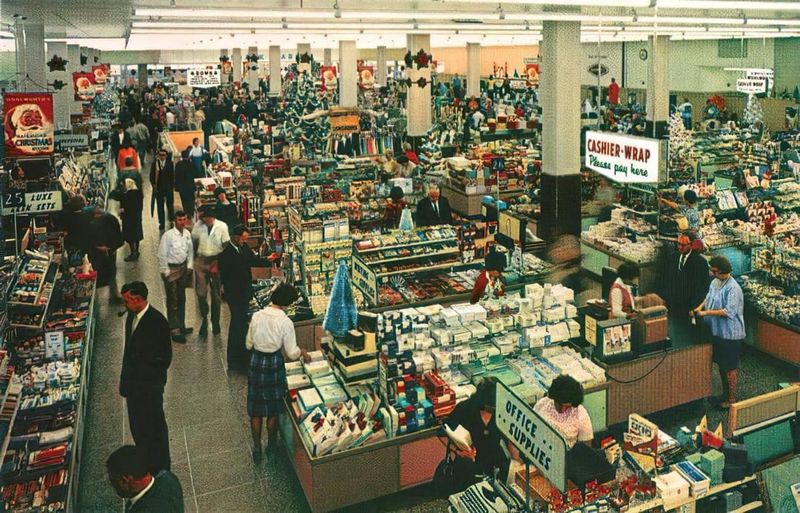
Woolworth’s, often dubbed the “Five-and-Dime,” was renowned for its eclectic range of products, from toys to clothing. With a long history dating back to the late 19th century, by the ’70s, Woolworth’s had become a staple in American shopping malls. The vibrant, bustling atmosphere drew families seeking affordability and variety. Shoppers could enjoy a quick meal at the lunch counter, making it a one-stop destination for many. Its legacy includes pioneering the concept of the modern retail chain. Did you know? Woolworth’s introduced fixed prices, eliminating the need for haggling—a revolutionary idea at the time.
Sears
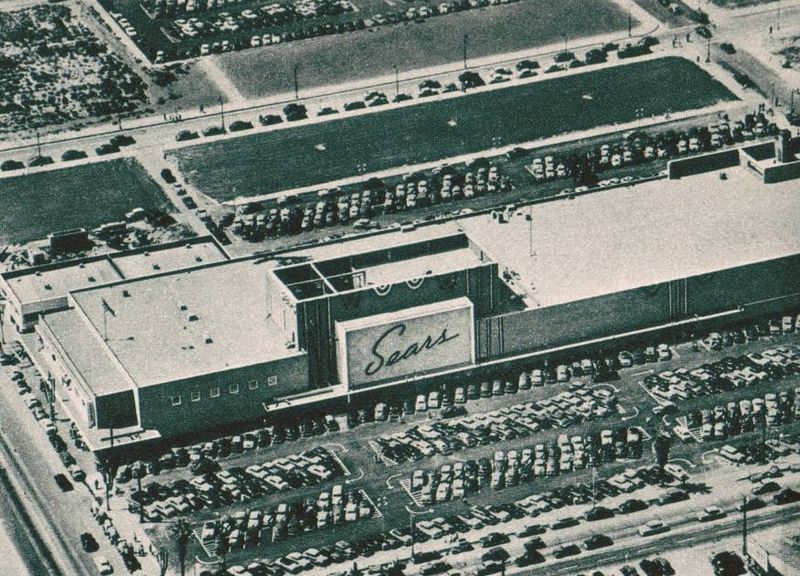
Sears was synonymous with the American retail landscape, especially in the ’70s. Known for its massive catalog, it offered everything from fashion to furniture. At the heart of its success was the ability to cater to a wide demographic. Shoppers relished the convenience of finding everything under one roof. Fun fact: Sears was once the world’s largest retailer. Its innovative approach included catalog sales, allowing customers in remote areas to access a vast array of products. This adaptability ensured Sears’ prominence in American homes.
Kmart
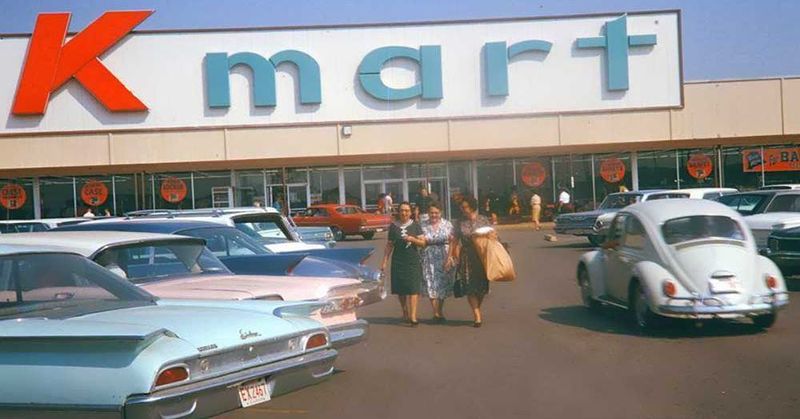
Kmart, with its famous “blue light specials,” captured the essence of impulsive shopping delight. In the ’70s, it thrived as a discount department store, offering competitive prices and diverse merchandise. Families flocked to Kmart for everything from groceries to garden supplies. The store’s appeal lay in its affordability and innovative marketing tactics. Did you know? The Sears Tower, once the tallest building in the world, was named after Kmart’s parent company. Kmart’s accessibility and value-oriented approach made it a quintessential part of the American shopping experience.
RadioShack
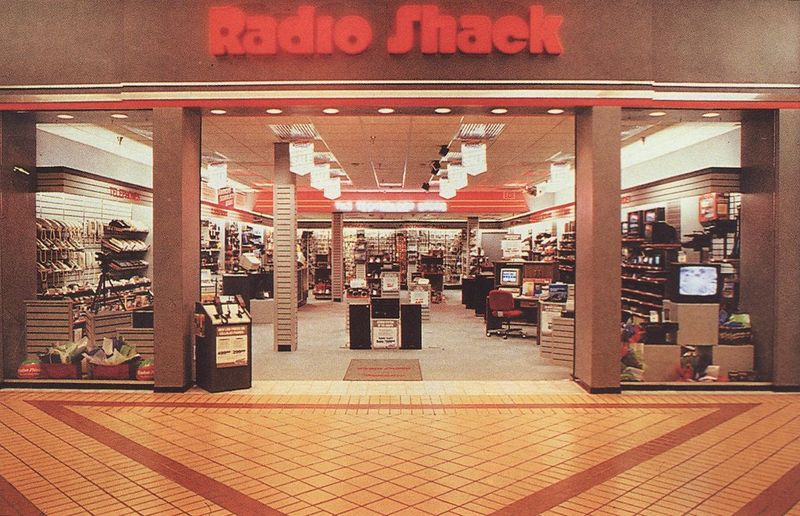
RadioShack was the go-to destination for tech enthusiasts in the ’70s, offering a treasure trove of electronic gadgets and components. Known for its knowledgeable staff and innovative products, it became a haven for hobbyists and tech pioneers. Whether you needed a new transistor radio or parts for a DIY project, RadioShack had it all. Fun fact: RadioShack was among the first retailers to sell personal computers. Its emphasis on technology and customer service set it apart, creating a community of loyal customers eager to explore the latest innovations.
The Gap
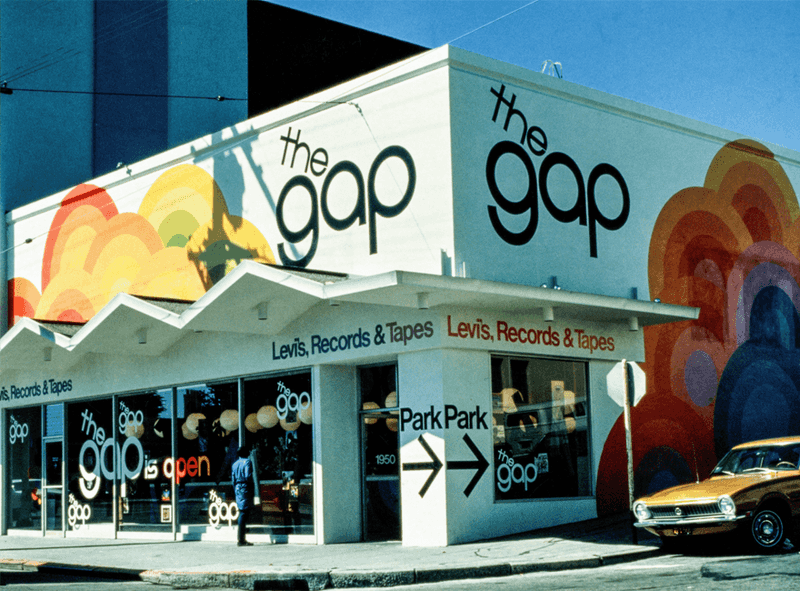
Founded in 1969, The Gap quickly became a fashion powerhouse in the ’70s. Known for its iconic denim, it revolutionized casual wear with its fresh, youthful appeal. The brand resonated with a generation seeking comfortable yet stylish clothing options. Its simple yet effective marketing focused on quality and versatility. Did you know? The Gap’s founders aimed to bridge the generation gap with their clothing. This mission translated into a diverse range of products that appealed to both young and old, cementing its place in American fashion history.
Montgomery Ward
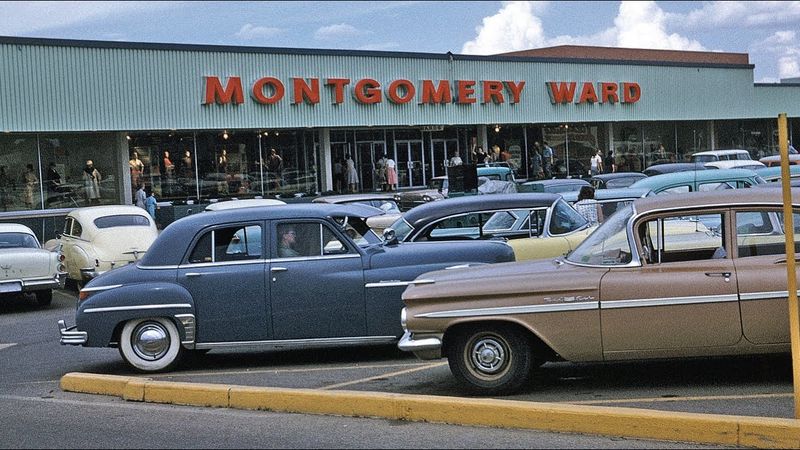
Montgomery Ward was a pioneer in the mail-order business, transforming how Americans shopped by bringing a wide range of products to their doorstep. Known as “Monkey Wards,” it expanded into retail stores across the U.S.
During the ’70s, its catalogs became a staple in households, offering everything from clothing to electronics. It was a place where families could find affordable products in one convenient location.
Despite its eventual decline, Montgomery Ward’s innovative approaches in retail and catalog shopping left a lasting impact on the industry.
JCPenney
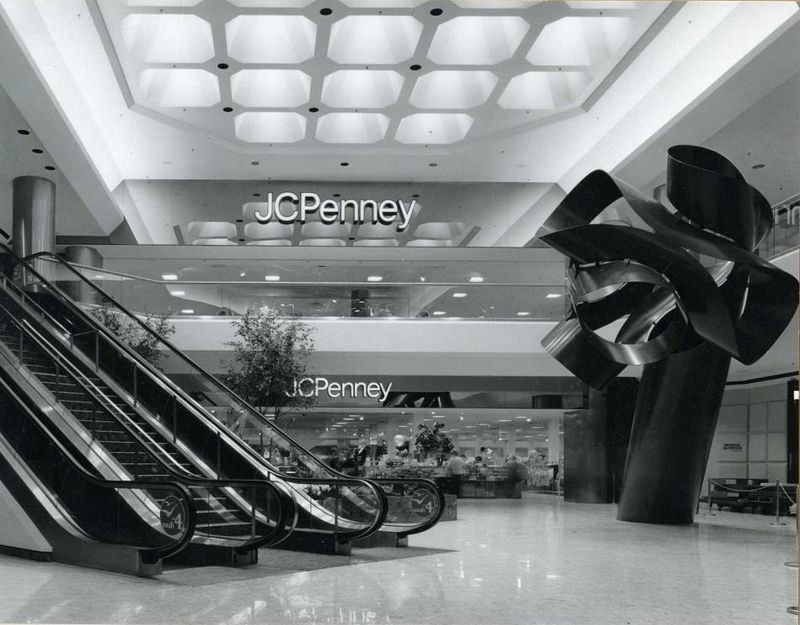
JCPenney was synonymous with quality and affordability in the ’70s, offering a wide range of products from fashion to home goods. Its stores became a go-to destination for families seeking value without compromising style.
The chain’s innovative marketing strategies and customer-friendly policies helped it thrive during the decade. JCPenney’s catalogs also played a significant role, reaching millions of homes across America.
Known for its promotional events and reliable service, JCPenney became a beloved part of the shopping experience, leaving a legacy of trust and quality.
A&P Supermarkets
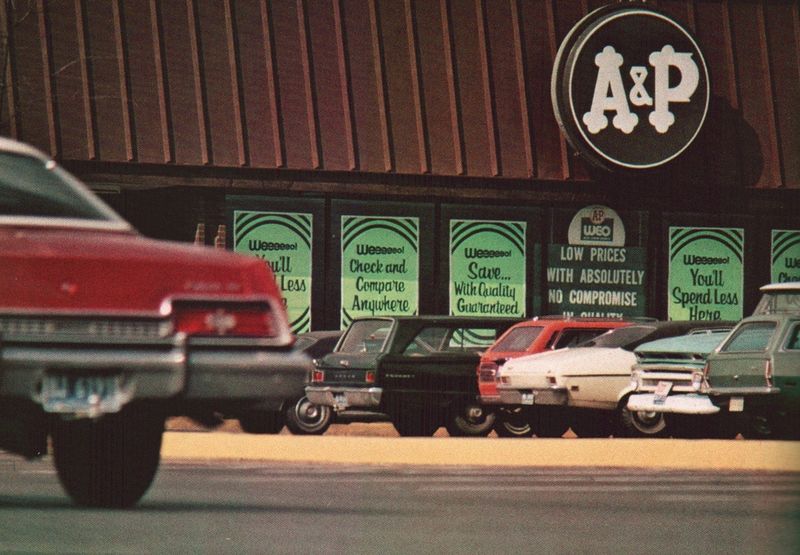
A&P Supermarkets were the cornerstone of grocery shopping in the ’70s, known for their wide selection and competitive prices. Often referred to as the “Walmart of its day,” A&P was a leader in the supermarket industry.
With its iconic red, white, and blue logo, A&P offered a variety of products, from fresh produce to household essentials. Its presence in neighborhoods across America made it a familiar and trusted brand.
The supermarket chain’s focus on customer satisfaction and innovation set the standard for modern grocery shopping.
B. Dalton Bookseller

B. Dalton Bookseller revolutionized book retailing in the ’70s by bringing a wide selection of books to shopping malls across America. Known for its inviting atmosphere, B. Dalton made reading accessible and enjoyable.
The chain’s knowledgeable staff and well-organized stores attracted book lovers of all ages. It became a cultural hub where people could discover new authors and immerse themselves in literary worlds.
B. Dalton’s influence extended beyond its time, setting a precedent for modern bookstores with its customer-centric approach.
Kinney Shoes
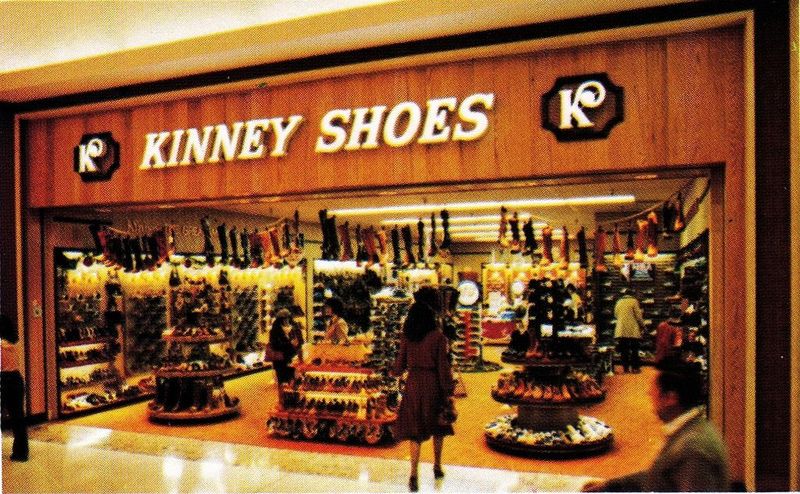
Kinney Shoes was a staple in the ’70s, known for its affordable and fashionable footwear. With a wide selection for men, women, and children, Kinney Shoes became a family favorite.
The chain’s commitment to quality and style ensured that customers could find the perfect pair of shoes for any occasion. Kinney’s stores were conveniently located in malls, making shoe shopping easy and enjoyable.
Despite changing fashion trends, Kinney Shoes left a lasting impression on the retail industry with its emphasis on customer satisfaction and innovation.
Ben Franklin Stores
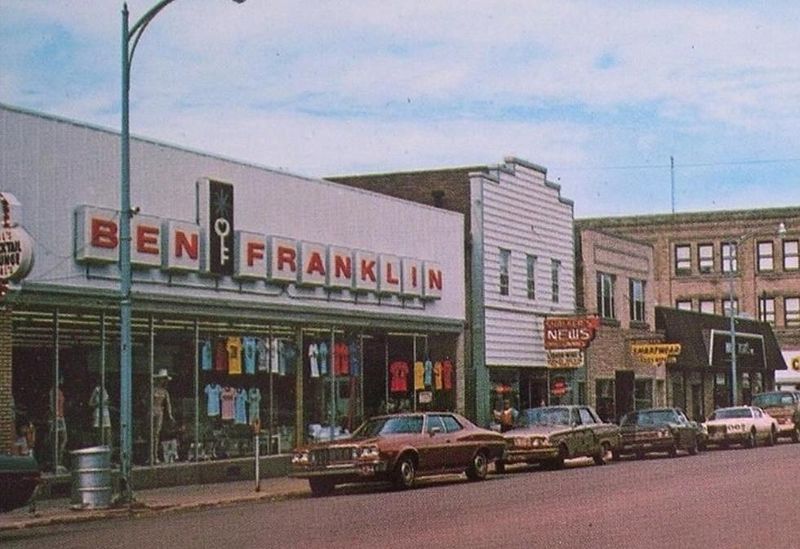
Ben Franklin Stores were a beloved part of many communities in the ’70s, offering a wide array of products from crafts to school supplies. Known as a “five-and-dime,” it was a go-to destination for everyday needs.
The stores’ friendly environment and diverse selection made them a favorite among families. Ben Franklin’s commitment to providing affordable options ensured that everyone could enjoy a great shopping experience.
Though the chain eventually faded, its legacy lives on as a pioneer in the variety store sector.
Sam Goody
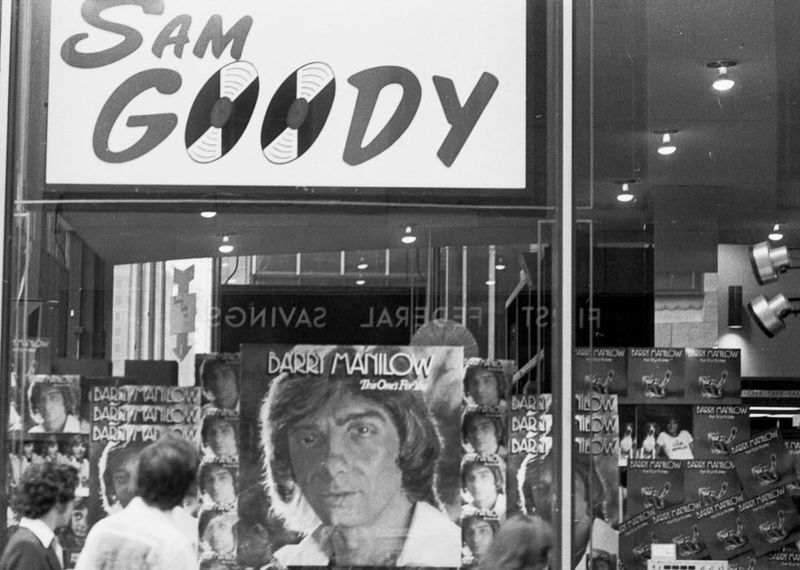
Sam Goody was the ultimate destination for music lovers in the ’70s, offering an extensive collection of vinyl records and tapes. Known for its knowledgeable staff, the store was a haven for discovering new music.
With its commitment to providing the latest hits and timeless classics, Sam Goody became a cultural icon in the music retail industry. It was more than just a store; it was a gathering place for music enthusiasts.
The chain’s influence on music retailing remains, shaping how people buy and enjoy music today.
Eckerd Drug
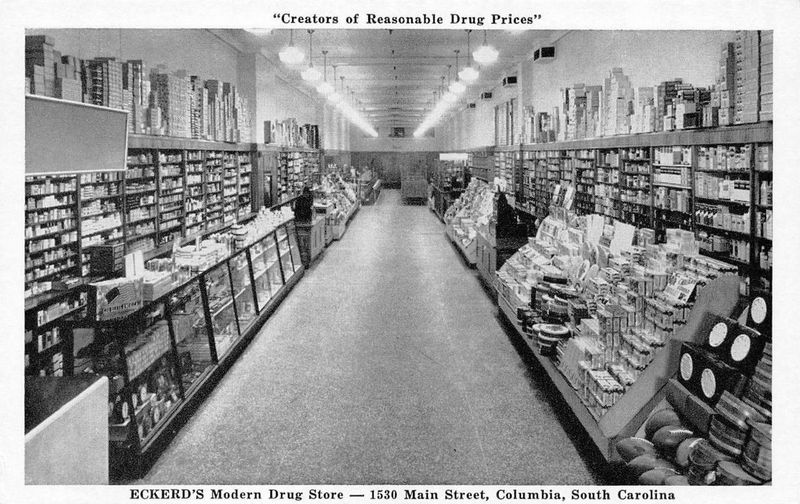
Eckerd Drug was a trusted name in pharmacy and health products during the 1970s, known for its wide range of offerings and convenient locations. Shoppers relied on Eckerd for quality service and affordable healthcare solutions.
Apart from its pharmacy services, Eckerd stores also offered an array of beauty and household products, making it a one-stop-shop for many families.
The chain’s focus on customer care and community engagement contributed to its popularity and success, influencing the modern drugstore model.
Baskin-Robbins
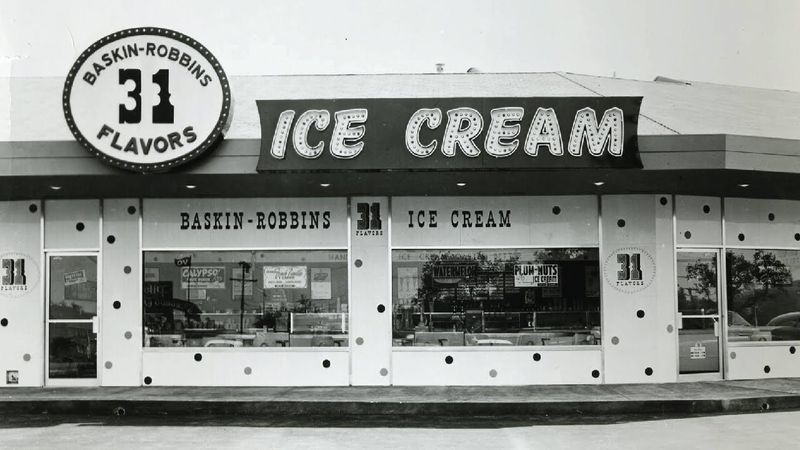
Baskin-Robbins delighted customers with its “31 flavors” concept, revolutionizing the ice cream industry in the 1970s. Known for its innovative and delicious flavors, the brand became synonymous with fun and indulgence.
The chain’s vibrant stores and friendly atmosphere made it a favorite spot for families and friends. Baskin-Robbins’ commitment to quality and creativity ensured a memorable experience for every visitor.
Its influence on the dessert market continues, with its iconic pink spoons and playful branding leaving a sweet legacy.
Howard Johnson’s
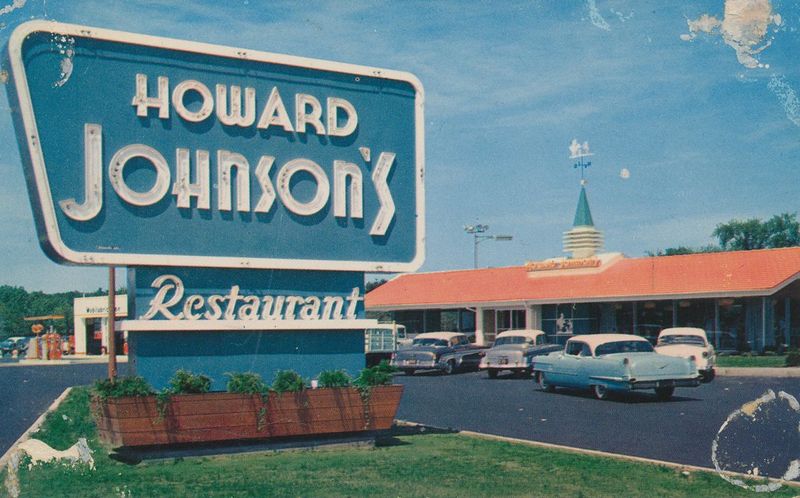
Howard Johnson’s was an iconic part of American travel in the 1970s, offering comfortable motels and family-friendly restaurants. Known for its orange roof and ice cream parlors, it became a symbol of road trip nostalgia.
The chain’s commitment to consistency and quality ensured a pleasant experience for travelers and diners alike. With a menu full of classic American dishes, Howard Johnson’s was a reliable choice for families on the go.
Though its presence has dwindled, its legacy as a pioneer in hospitality endures.
W.T. Grant
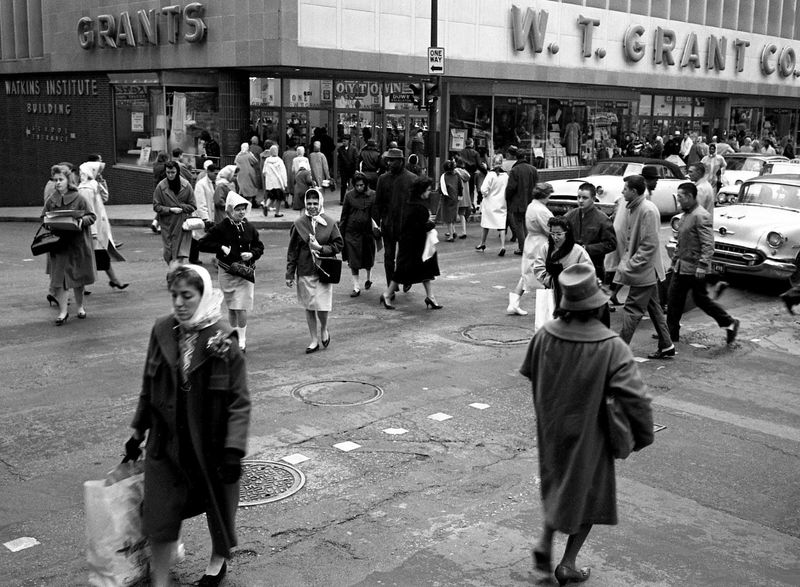
W.T. Grant was a prominent department store chain in the ’70s, known for its variety of products and accessible prices. It became a shopping destination for families seeking convenience and value.
The stores offered everything from clothing to home goods, catering to a wide range of customer needs. W.T. Grant’s commitment to affordability and quality service made it a beloved part of many communities.
Though the chain eventually closed, its impact on the retail landscape and dedication to customer satisfaction remain remembered.
F.W. Woolworth’s
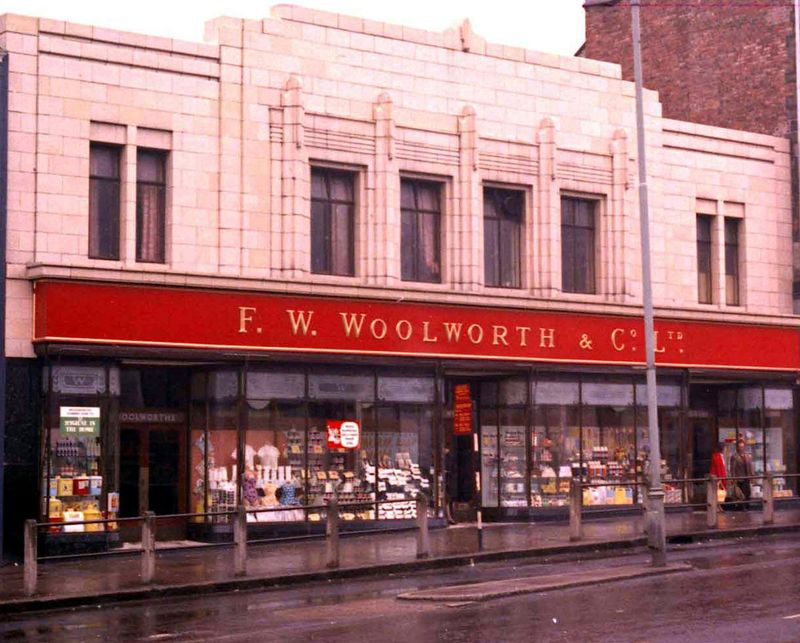
F.W. Woolworth’s was a symbol of the five-and-dime store era, offering a wide range of products at unbeatable prices. Known for its lunch counters and variety of goods, it was a staple in American shopping.
During the ’70s, Woolworth’s was a place where families could find everything from toys to toiletries. Its presence in downtown areas made it a convenient stop for everyday needs.
Though the chain eventually closed, its legacy as a pioneer in retail endures, influencing modern discount stores.
Sbarro
Sbarro brought the flavors of Italy to American malls in the ’70s, offering delicious pizza and pasta dishes. Known for its fresh ingredients and authentic recipes, Sbarro became a go-to spot for mall-goers.
The chain’s open kitchen concept and fast service made it a popular choice for a quick and satisfying meal. Sbarro’s vibrant presence in food courts contributed to the growth of casual dining.
Its influence in the fast-food industry remains, with its commitment to quality and taste continuing to delight customers.
T.G.I. Friday’s
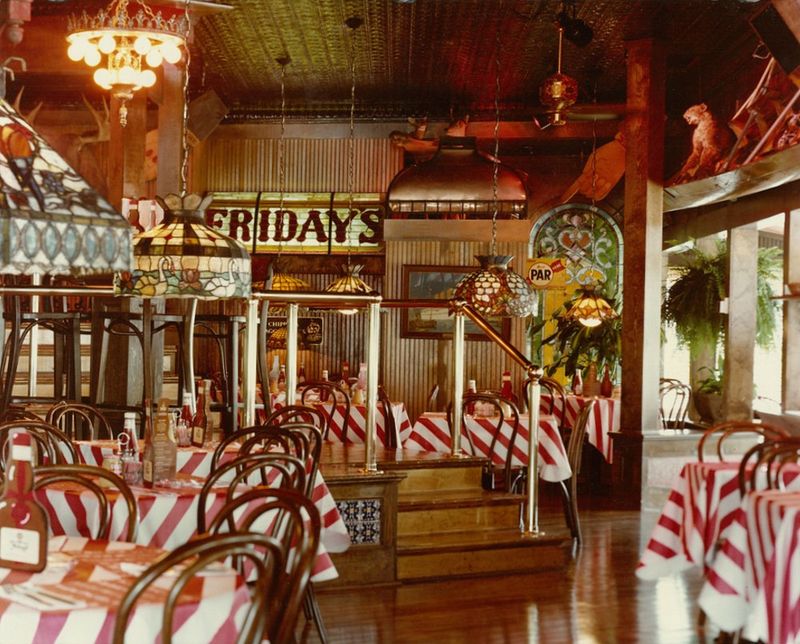
T.G.I. Friday’s revolutionized casual dining in the ’70s with its vibrant atmosphere and innovative menu. Known for its fun-loving spirit, it became a popular hangout spot for young adults.
The restaurant’s flair bartending and creative cocktails set it apart, offering a unique dining experience that combined great food with entertainment. T.G.I. Friday’s encouraged socializing and celebration.
Its impact on the restaurant industry is evident today, with its legacy of fun and quality service continuing to attract diners.
Merry-Go-Round
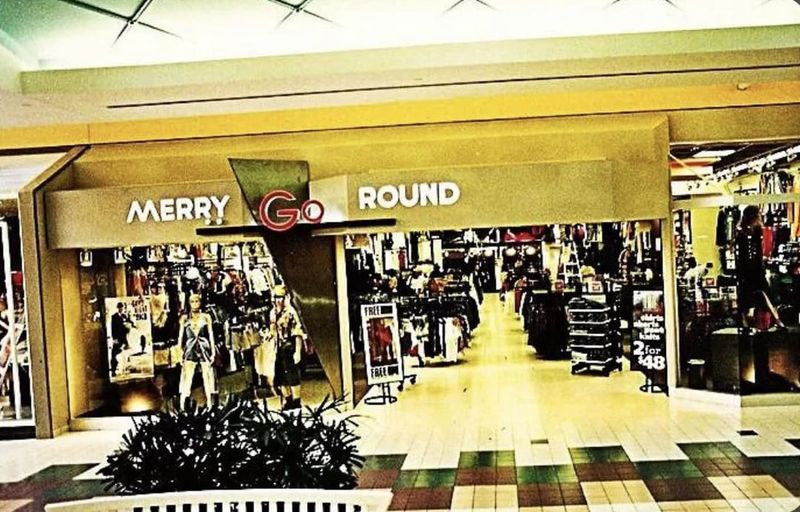
Merry-Go-Round brought trendy fashion to the masses in the ’70s, offering a wide range of stylish clothing for young adults. Known for its bold designs, it became a fashion-forward destination.
The store’s energetic vibe and constantly updated inventory attracted trendsetters looking for the latest styles. Merry-Go-Round’s commitment to affordable fashion made it accessible to all.
Though the chain eventually closed, its influence on youth fashion and retail innovation left a lasting impact on the industry.
Burger Chef
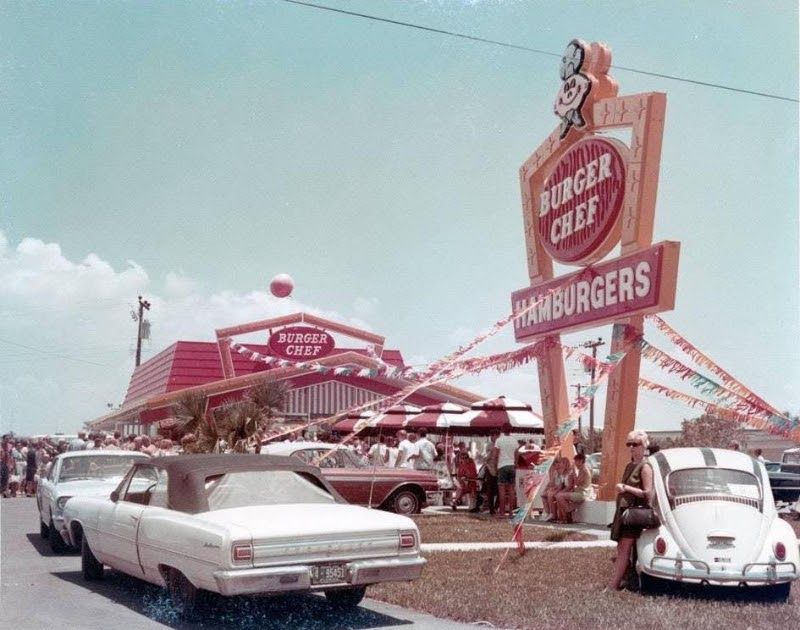
Burger Chef was a fast-food pioneer in the ’70s, known for its innovative menu and speedy service. It introduced the “Funmeal,” a precursor to the modern kids’ meal, delighting children and parents alike.
With its cheerful branding and tasty offerings, Burger Chef became a favorite among families looking for a quick and satisfying meal. The chain’s commitment to quality and innovation set a new standard in fast food.
Though it eventually faded, its legacy in menu creativity and family dining endures.
Shakey’s Pizza
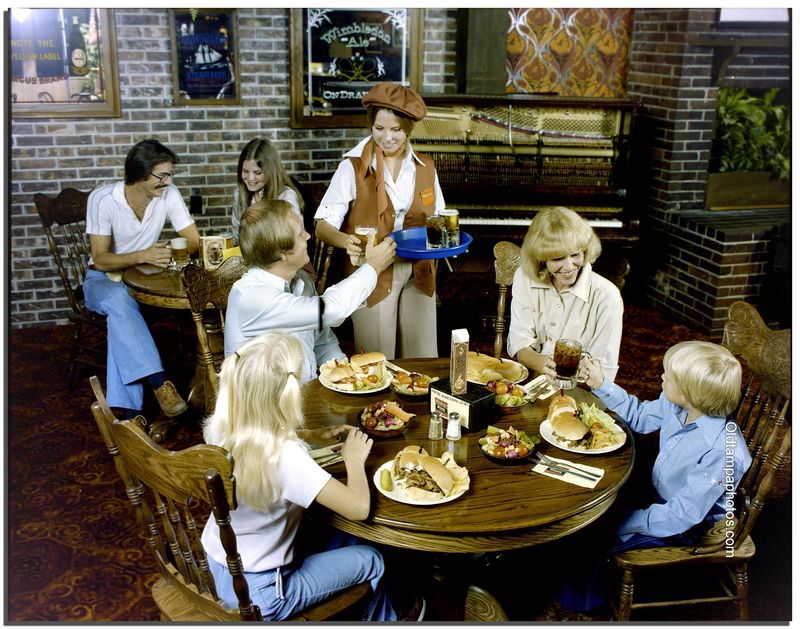
Shakey’s Pizza offered more than just delicious pizza in the ’70s; it provided a lively entertainment experience. Known for its live music and fun atmosphere, Shakey’s became a popular spot for family gatherings.
The chain’s commitment to quality ingredients and friendly service made it a standout in the competitive pizza industry. Shakey’s unique blend of food and entertainment ensured a memorable dining experience.
Its influence on casual dining and pizza culture is still felt today, with its legacy of fun and flavor continuing to charm customers.
Leave a comment